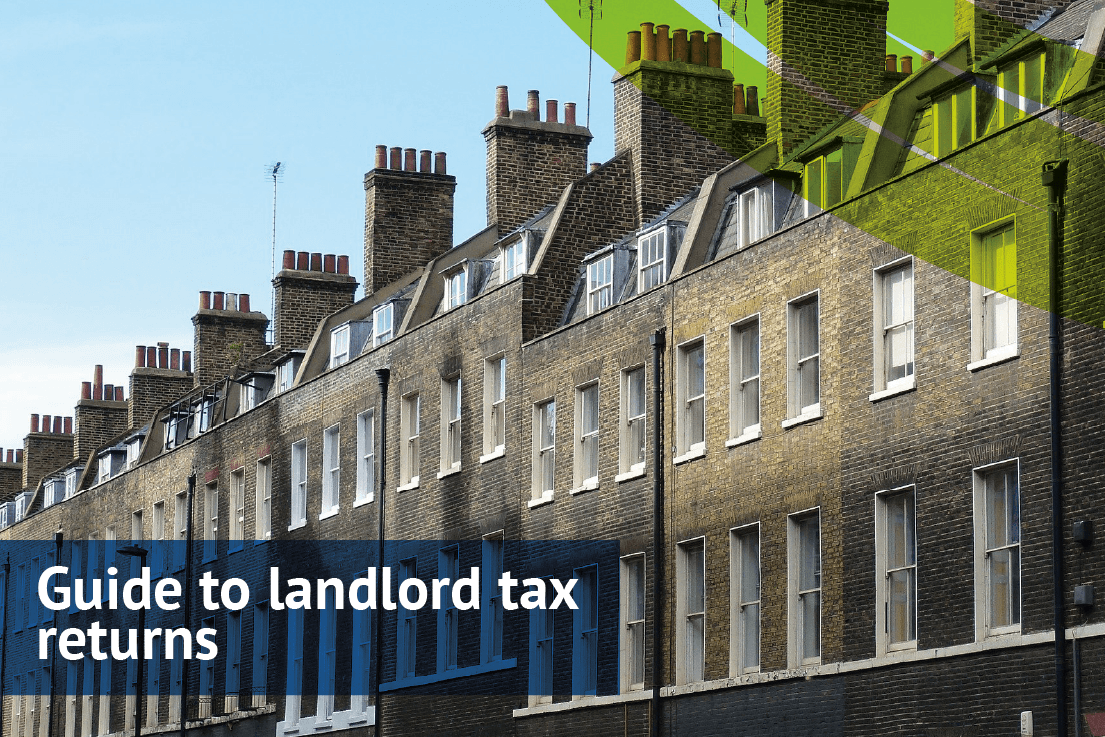Guide to completing your landlord tax return
19th January 2021
You need to complete a landlord tax return if you receive a significant income from your rental property. In this guide we explain the tax you are liable for and how to submit your Self Assessment tax return.
Do I need to submit a landlord tax return?
Not all landlords automatically have to submit a tax return. Generally landlords fall under two categories:
Running a property business
You are classed as running a property business if you earn profits of £6,745 per year or more and the following apply:
- Your main job is being a landlord
- You rent out more than one property
- You’re buying new properties to rent out
Property you personally own
This tends to apply to landlords who have inherited a property and are letting it out, or who have purchased a property as a source of additional income. Everyone is entitled to the first £1,000 of rental income tax-free. However, you will need to report rental income via Self Assessment if your property income is:
- £2,500 to £9,999 after allowable expenses
- £10,000 or more before allowance expenses
If you earn between £1,000 or £2,500 from your property you should contact HMRC.
What tax do landlords pay on rental income?
Depending on the above criteria, you may be required to pay the following:
National Insurance Contributions (NICs)
You only need to pay Class 2 National Insurance if you are running a property business – i.e. renting out properties is your main job and your profits are £6,475 or more.
If your profits are less than £6,475 you can make voluntary Class 2 National Insurance payments, for example to ensure you get the full state pension.
NICs are paid via the Self Assessment process.
Income Tax
You must pay tax on rental income you make above the £1,000 tax-free allowance. You will declare this via your annual Self Assessment tax return.
Stamp Duty Land Tax
Stamp Duty applies when buying or selling a property and there is a surcharge for buy-to-let properties.
Capital Gains Tax
Capital Gains Tax applies if you have made a profit when you “dispose” of a property that isn’t your main home. This includes buy-to-let or other rental properties, business premises, land and property you’ve inherited. It’s important to remember that “disposing” of a property includes:
-
Selling it
-
Giving it away as a gift
-
Transferring ownership to someone else
-
Trading it for something else
-
Receiving compensation for it – such as an insurance pay out if it has been destroyed
You can read more about Capital Gains Tax in our guide.
Are landlords eligible for tax relief?
Landlords can claim certain allowances. To be tax deductible against your rental income the expense must be revenue in nature and incurred wholly and exclusively for the purpose of renting the property. Below are some examples of expenses that may be tax deductible:
- Maintenance and repairs
- Professional service fees – e.g. solicitors, accountants
- Service charges
- Wages
- Insurance premiums
- Council tax and ground rent
- Office/admin costs – e.g. stationary, phone lines
- Replacement furniture relief
Read our guide to what rental businesses can and can’t claim for further information about allowable expenses.
How to complete a Self Assessment landlord tax return
The easiest way to file is online. It’s a good idea to have all the documentation you need to hand – remember you will need the following information:
- Your 10-digit UTR
- National Insurance number
- Details of any untaxed income from the last tax year
- Any tax reliefs you may be eligible for, including pensions, charitable donations and business purchases
- P60
You will be required to complete two sections – the main form (SA100) and form SA015, which is where you’ll need to declare any income from long and short term rentals, including holiday lets.
Remember – the deadline for completing your Self Assessment is 31st January.
Read our guide to HMRC Self Assessment for further details and guidance on how to complete your tax return.
Expert North East accountants
We help landlords across the North East to ensure they’re paying the optimum amount of tax. For further support with your landlord tax return in Tyne & Wear and County Durham, get in touch with our team of tax specialists.





